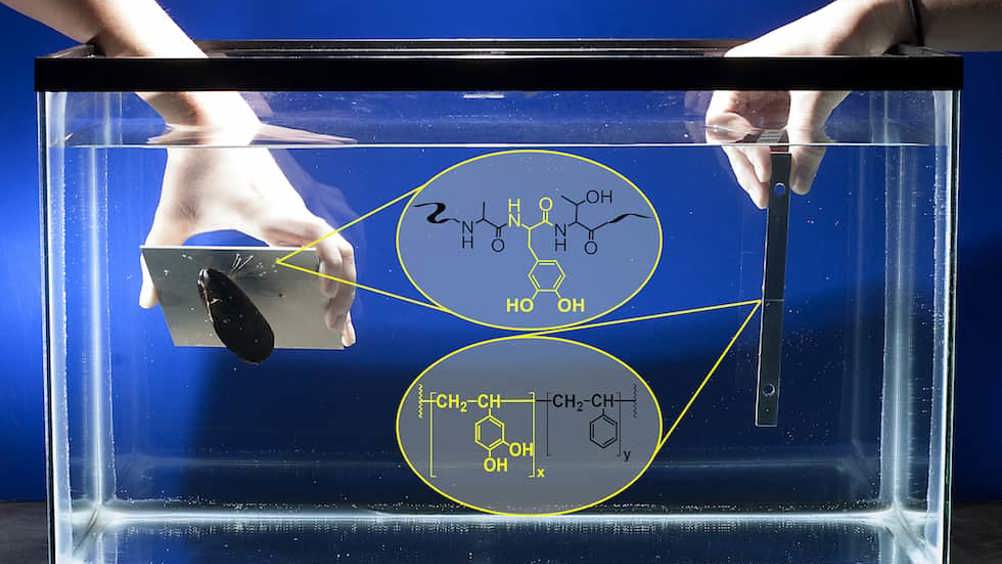Sticking point: researchers turn to shellfish for a strong bond
Researchers in the US have turned to nature to develop an adhesive that works under water and is stronger than a number of commercially available glues.

The team at Purdue University in Indiana modelled their biomimetic polymer on compounds found in shellfish.
“Our current adhesives are terrible at wet bonding, yet marine biology solved this problem eons ago,” said Jonathan Wilker, a professor of chemistry and materials engineering at Purdue University.
“Mussels, barnacles, and oysters attach to rocks with apparent ease. In order to develop new materials able to bind within harsh environments, we made a biomimetic polymer that is modelled after the adhesive proteins of mussels.”
Results showed that the bio-based glue performed better than 10 commercial adhesives when used to bond polished aluminium.
Compared with the five strongest commercial glues included in the study, the new adhesive performed better when bonding wood, Teflon and polished aluminium. It was the only adhesive of those tested that worked with wood and out-performed the other adhesives when used to join Teflon.
Findings are detailed in a research paper published online and in ACS Applied Materials and Interfaces.
Register now to continue reading
Thanks for visiting The Engineer. You’ve now reached your monthly limit of news stories. Register for free to unlock unlimited access to all of our news coverage, as well as premium content including opinion, in-depth features and special reports.
Benefits of registering
-
In-depth insights and coverage of key emerging trends
-
Unrestricted access to special reports throughout the year
-
Daily technology news delivered straight to your inbox










National Gas receives funding to develop Gravitricity underground hydrogen storage system
One single rock salt mine - Winsford - has 23 <i>MILLION </i>cubic metres of void and even allowing for 10% of that void set aside for hazardous waste...